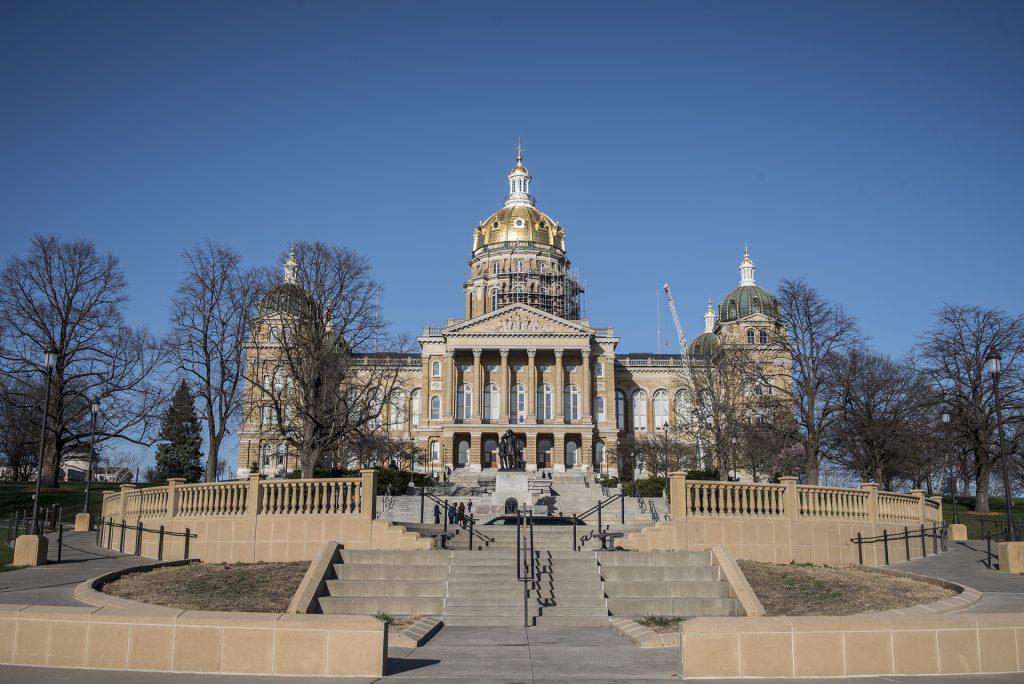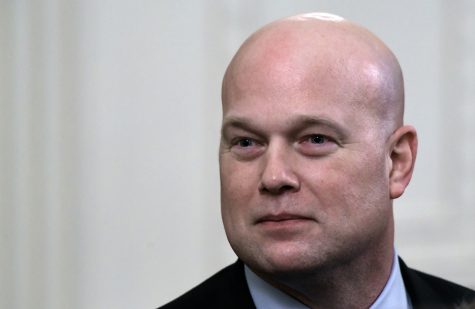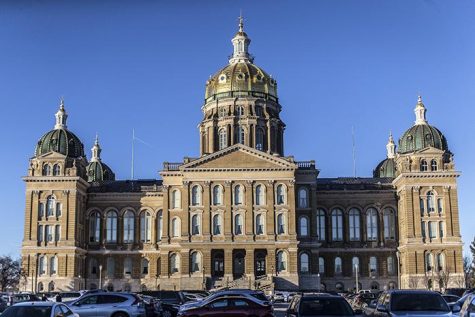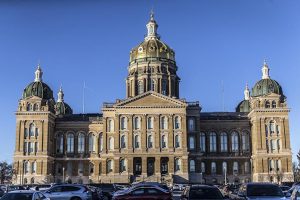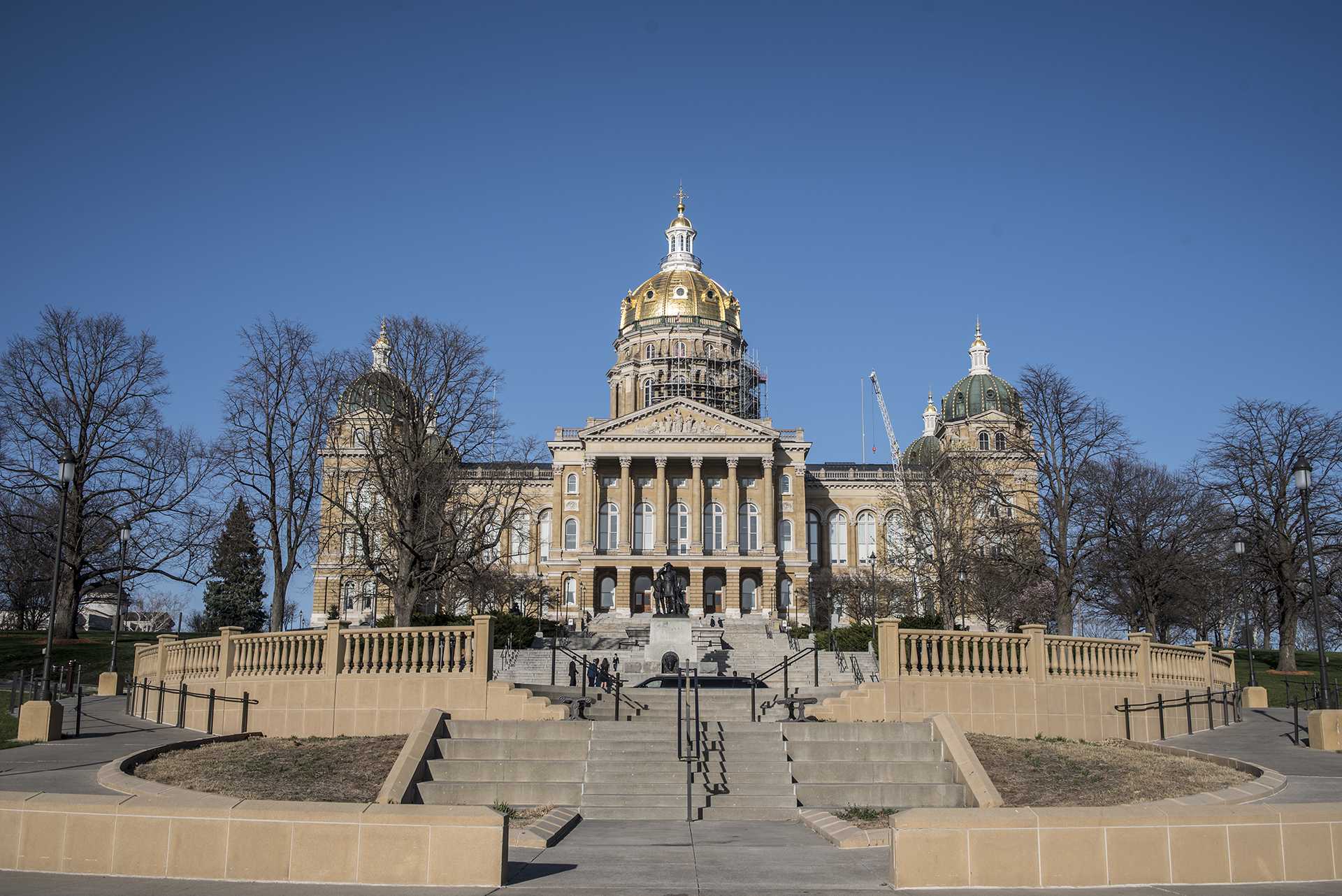Iowa districts change hands in midterms
The Daily Iowan spoke with two state representatives-elect who unseated an incumbent in the last election.
The Capitol building in Des Moines is pictured on April 29, 2019.
December 4, 2018
While Republicans maintained their hold on the state Legislature, Iowa Democrats made gains in the midterm elections, with Democrats unseating Republican incumbents in four House seats and one Senate. Republicans replaced Democratic incumbents in a pair of seats, one in the House and the other in the Senate.
As for what these results could mean for Democrats in the 2020 elections, University of Northern Iowa political-science Professor Christopher Larimer said it may be too early to tell.
RELATED: Midterms solidify Iowa as purple state
“It’s hard to know until you almost get up to that election year as far as which seats are even going to have challengers,” he said, noting that a good indicator of competitive state elections will be the number of districts Democrats run in.
He believes the partisan divide between rural and urban districts is likely to challenge Democrats in picking up rural districts.
“That rural/urban divide in Iowa seems to be getting deeper each election cycle,” Larimer said.
An example of the division can be found in Butler and Polk Counties. According to data from the 2010 census, Butler County had the largest population for a 100 percent rural county. Democrats are in the minority, making up 17.6 percent of the latest active-voter-registration totals. Republicans top other affiliations with 46.7 percent.
RELATED: Libertarian loses official party status after midterms
Polk County, where 95 percent of its residents reside in urban areas, has a different partisan makeup. Democrats lead all other partisan-affiliation categories with 40 percent compared with Republicans’ 28.3 percent.
Democrat Karin Derry flipped one of 15 Statehouse districts in Polk County on Nov. 6 and will represent District 39 in January, which covers Grimes, Johnston, and part of Urbandale.
Derry, a first-time candidate, narrowly unseated Jake Highfill, a Republican who was vying for a fourth term, by 1 percentage point.
“I really tried to communicate to voters that I’d listen, and that I would be responsive, and that I’d show up,” Derry said. “I think that really resonated with people.”
While the Legislature and the governorship remain Republican, she said, she saw shifts toward Democrats in the last election in congressional and legislative races.
“There were a lot of seats like mine, particularly in metro areas, that flipped,” Derry said.
It may be too early to tell what the 2018 results will mean for Democrats in 2020, she said, noting that it will depend on what elected officials do in the next two years, particularly in the areas of education funding and the privatization of Medicaid.
On the other hand, Shipley, newly elected Republican representative for Iowa House District 82, in southeastern Iowa, said he is not concerned about change in power in the Statehouse in 2020.
“I see Republicans holding the majority for the foreseeable future,” he said.
Shipley, who had previously made unsuccessful runs for the seat, edged incumbent Democrat Phil Miller by 37 votes following a recount that concluded on the afternoon of Nov. 28. Miller was elected in an August 2017 special election.
Shpley said he believes that “smart meters” pulled in votes from constituents who may not have voted for a Republican candidate.
2019 will be the fourth year Iowa Republicans will control the Legislature and the Governor’s Office. Prior to that, Democrats controlled the Senate.
The next Legislature will have 54 Republicans and 46 Democrats in the House and 32 Republicans and 18 Democrats in the Senate. Republicans gained three seats in the Senate and lost five seats in the House.
One seat, however, may be on shaky ground after a vote recount certified that incumbent Republican Michael Bergan defeated Democrat Kayla Koether for the Iowa House District 55 seat by nine votes. Koether filed a complaint, claiming 33 ballots weren’t properly counted.
A judge ruled on Monday that the 33 mail-in ballots, which apparently did not have postmarks and were discarded, did have postal bar codes that may indicate when they were mailed.
The judge did not rule whether the ballots were valid; the ruling says only that the data in the bar codes must be examined.



